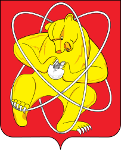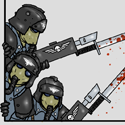|
bewbies posted:I'd argue the Seven Years' War (or in Amurka the French and Injun War) was the first "world war" in a useful sense, between 15 and 20 different nations participating (depending on how loosely you define Indian nations) and fighting across 4 different continents. Perhaps but 18th century warfare is the most boring thing on the planet so it doesn't count.
|
|
|
|

|
| # ? Apr 27, 2024 17:47 |
|
Rodrigo Diaz posted:Perhaps but 18th century warfare is the most boring thing on the planet so it doesn't count. Don't know, Fredrick the Great wrecked some poo poo in his day.
|
|
|
|
Rodrigo Diaz posted:Perhaps but 18th century warfare is the most boring thing on the planet so it doesn't count. This is pretty much a :milgoonsay:, I love the century
|
|
|
|
Rabhadh posted:This is pretty much a :milgoonsay:, I love the century Then answer my earlier question regarding the logistical planning for Napoleon's campaign in Russia, damnit! How did the armies ensure that they wouldn't run out of gunpowder just prior to the decisive battle on long campaigns like that? Or could Nappy expect to receive supplies to Moscow if need be? Or did they just go in and hope for the best, like Napoleon did in Egypt? P.S. pre:___^____ / / 卐______\ /_/[ .]-[ .] (_______O__) Just barely, there's very little difference between Seven Years War, American Independence War and Napoleonic Wars as far as armies functioned. But feel free to present a counter argument! VVVV Nenonen fucked around with this message at 17:40 on Dec 13, 2010 |
|
|
|
Nenonen posted:Then answer my earlier question regarding the logistical planning for Napoleon's campaign in Russia, damnit! How did the armies ensure that they wouldn't run out of gunpowder just prior to the decisive battle on long campaigns like that? Or could Nappy expect to receive supplies to Moscow if need be? Or did they just go in and hope for the best, like Napoleon did in Egypt? Napoleon is 19th Century
|
|
|
|
Nenonen posted:Then answer my earlier question regarding the logistical planning for Napoleon's campaign in Russia, damnit! How did the armies ensure that they wouldn't run out of gunpowder just prior to the decisive battle on long campaigns like that? Or could Nappy expect to receive supplies to Moscow if need be? Or did they just go in and hope for the best, like Napoleon did in Egypt? Holy crap, there's an ASCII swastika
|
|
|
|
Nenonen posted:Then answer my earlier question regarding the logistical planning for Napoleon's campaign in Russia, damnit! How did the armies ensure that they wouldn't run out of gunpowder just prior to the decisive battle on long campaigns like that? Or could Nappy expect to receive supplies to Moscow if need be? Or did they just go in and hope for the best, like Napoleon did in Egypt? He did have supply lines, but those were intercepted by partisans and Kutuzov's army while Napoleon was sitting in Moscow. I don't know what the gunpowder situation was like at that point, but they were certainly running out of food.
|
|
|
|
Puukko naamassa posted:I love how, among other things, the US Army published a comic book for the soldiers to battle this problem. Wow, this "lady" really looks like a bitch. Compare this to the disassembly of an AK-47 style weapon - for which no tools are needed: 
|
|
|
|
pigdog posted:Wow, this "lady" really looks like a bitch. Compare this to the disassembly of the AK-47 style weapon - for which no tools are needed: goddamn, I could recognize that thing anywhere RK buddy?
|
|
|
|
pigdog posted:Wow, this "lady" really looks like a bitch. Compare this to the disassembly of an AK-47 style weapon - for which no tools are needed: If you're going to make a point that the AK series are less complicated, fine, but don't imply things which aren't true, no rifle in service with any military today needs tools to disassemble.
|
|
|
|
If your rifle experiences a serious enough malfunction that it actually needs to be field-stripped during a firefight, the relative ease of disassembling a Kalashnikov versus an AR is probably not going to make a difference in how screwed you are. The main things are how prone the weapon is to jamming and how easy it is to clear jams when they occur, and with the kind of basic maintenance that every soldier is supposed to perform on his weapon, the difference between the current iterations of the M-16 and AK aren't big. The AK probably has an advantage in that you could get yourself covered in mud and still be good to go, and also it's supposed to be tough enough to clear a bad jam by slamming the charging handle with an instrument. But in practical terms the difference between the weapons is pretty small. That said, the AKM is objectively a better weapon because it has sexy wood furniture.
|
|
|
|
I'm reading Tuchman's Guns of August and she portrays Joffre as a tunnel-visioned bumbler who can only focus on the Plan 17 offensive at the start of the war, ignoring all reports of a large German right wing offense, temperamentally incapaple of listening to subordinates who call for a defensive strategy. I can't believe anyone this stupid would be put in charge, and suspect that Tuchman may have exaggerated Joffre's decision making for dramatic effect. What is the historical consensus on Joffe?
|
|
|
|
dokmo posted:I'm reading Tuchman's Guns of August and she portrays Joffre as a tunnel-visioned bumbler who can only focus on the Plan 17 offensive at the start of the war, ignoring all reports of a large German right wing offense, temperamentally incapaple of listening to subordinates who call for a defensive strategy. I can't believe anyone this stupid would be put in charge, and suspect that Tuchman may have exaggerated Joffre's decision making for dramatic effect. What is the historical consensus on Joffe? The plan was to beat the Germans in the Alsace-Lorraine region forcing the Germans right wing to lose the initiative. Everyone and their brother knew what the Germans were doing, just a matter of stopping them. Because of Joffre's defense at the First Battle of the Marne, he was redeemed of his failures at the beginning. I don't think Tuchman exaggerated anything. Stupid mistakes were made by both sides all throughout the war, and made even dumber with hindsight. A very good book non the less.
|
|
|
|
In response to the question about Joffre, as well as some earlier discussion about 18th versus 19th century warfare, Joffre's decisions were representative of prevailing strategic and tactical thought at the time. The supremacy of the offense was assumed to follow logically from the advent of industrialized weaponry and transportation, such as machine guns and trains. If an army possessed the ability to move quickly via motorized or rail traffic, this allowed them the advantage of choosing the location of an attack with little or no warning for the enemy. Furthermore, the burgeoning power of machine guns and artillery was expected to thoroughly dishearten defenders. As a result, it was believed, an immediate all-out assault, conducted in such a way as to disallow the enemy to respond effectively, was the best course of action at the beginning of a war. Indeed, this was the essence of the German Schlieffen plan. In addition, Plan XVII had been drawn up by none other than Marshall Foch, who believed that moral fortitude counted for more than such temporal things as bullets and shells. In any case, had the Schlieffen plan been followed more closely to its original intent, there would have been far weaker German defenses facing the French. Instead, the offensive portion of the German plan, namely the right wing, had been intentionally weakened by Moltke the Younger in order to strengthen precisely those defenses. As a result, the French ran into unexpected resistance in Alsace-Lorraine, while the Germans found themselves lacking sufficient strength to drive all the way to Paris. At this point, neither the French nor the Germans possessed the ability to continue an offensive war of maneuver, and the now well-known conditions of trench warfare began to manifest themselves. The reason for such widespread reliance on offensive principles originated in the Napoleonic Wars. Napoleon did indeed bring significant changes to the way war was conducted in Continental Europe. For example, he introduced the organizing structure of the Army Corps, or Corps d'Armee, which provided the French army with stable combined-arms groupings of divisions. In other words, a Corps was more or less a self sufficient body, able to prosecute offensive or defensive actions on its own. Therefore, when a French army engaged an enemy army, one of its Corps could act as a hammer while the other acted as an anvil. In contrast, the enemy army would be obliged to engage as basically a single large unit, thus limiting its ability to maneuver. Napoleon's Corps also allowed his armies to move more efficiently, since each corps could travel via a separate route, thus improving both speed and logistics. Furthermore, this allowed him to pursue his mantra of "Divide and conquer." Napoleon's remarkable offensive successes were etched in the memory of European armies for generations, and everyone assumed such methods would always work in the future. To illustrate just how innovative Napoleon's methods were, consider that, during the Ancien Regime, it was standard practice for armies to face each other in neat parallel lines, approach, and intentionally wait for the enemy to fire first. The reason for this was that the first side to fire put itself into a disadvantageous position as follows: Army A and Army B form ranks and approach to firing distance. Army A fires first, inflicting light casualties on Army B due largely to the inaccuracy of contemporary weapons. As Army A commences reloading, Army B continues to approach, fires at a closer range, thus inflicting heavier casualties, and immediately begins a bayonet charge as Army A is still in shock after receiving the volley. While this is certainly an idealized representation, it is indicative of the considerations facing contemporary commanders. This situation was the reason for the famous command at the Battle of Bunker Hill, "Don't fire until you see the whites of their eyes." The ability to sustain an initial enemy volley while continuing to close distance, followed by the ability to present an answering volley in good order, required an army to possess well-trained men who could continuously operate under such conditions. As a result, there was some reluctance to send such men into battle unless the result was pretty much certain, since each man represented a significant investment in training. Napoleon, however, had to rely primarily on conscript soldiers who did not benefit from such training. As such, he could not depend on their ability to accept the first volley and remain in good order. Instead, he made use of "Attack Columns" which were basically very large groups of men packed tightly together in order to provide some sense of security. These groups were then sent to march directly at the enemy line, thus providing a local superiority in numbers. The lessons garnered from Napoleon's techniques were not always well considered. One theoretician in particular, Antoine-Henri Jomini, devised a geometrical theory of warfare based on Napoleon's exploits in which interior lines, bases of attack, and other such jargony concepts were meant to break tactical and strategic decisions down into a series of simple mathematical calculations. Adherence to this theory was widespread throughout the 19th century and repeatedly manifested itself during the American Civil War, as well as World War I.
|
|
|
|
EvanSchenck posted:That said, the AKM is objectively a better weapon because it has sexy wood furniture. Aesthetically, wood may be better, but plastic is cheaper and more durable. Also, let me blow your mind: 
|
|
|
|
EvanSchenck posted:If your rifle experiences a serious enough malfunction that it actually needs to be field-stripped during a firefight, the relative ease of disassembling a Kalashnikov versus an AR is probably not going to make a difference in how screwed you are. The main things are how prone the weapon is to jamming and how easy it is to clear jams when they occur, and with the kind of basic maintenance that every soldier is supposed to perform on his weapon, the difference between the current iterations of the M-16 and AK aren't big. The AK probably has an advantage in that you could get yourself covered in mud and still be good to go, and also it's supposed to be tough enough to clear a bad jam by slamming the charging handle with an instrument. But in practical terms the difference between the weapons is pretty small. Compared to its Vietnam-era contemporary AK-47, the M16 rifle and ammunition were both significantly lighter while being no less lethal, so that was a considerable advantage. The M16 was also arguably more accurate - although "accurate" is a pretty woolly term for these kind of things, the M16 had superior recoil characteristics and could more easily be fitted with optical sights which in theory would help with accuracy. The accounts I've read from various reconnaissance type units in Vietnam almost universally rate the rifle as superior compared to the AK, which was also available to them if they so desired. The problems with powder and cleaning could easily have been ironed out during testing before widespread issue, it is inexplicable why they weren't.
|
|
|
|
They were, but the Army went with cheaper ammo made to a lower spec.
|
|
|
|
dokmo posted:I'm reading Tuchman's Guns of August and she portrays Joffre as a tunnel-visioned bumbler who can only focus on the Plan 17 offensive at the start of the war, ignoring all reports of a large German right wing offense, temperamentally incapaple of listening to subordinates who call for a defensive strategy. I can't believe anyone this stupid would be put in charge, and suspect that Tuchman may have exaggerated Joffre's decision making for dramatic effect. What is the historical consensus on Joffe? Also consider that right when WWI started, France and Germany had military parity only because of the fact that France had a larger percentage of its manpower in the regular army than Germany, due to the extra 20 million or so German people. Thus, it was in France's strategic interest to go on the offensive at first. The theory was that France's peacetime army would be able to penetrate the German frontier due to the local imbalance of troop strength (due to German commitment in the East) and the quality of the peacetime army. If France waited until after the German population could be mobilized and transported, then any French advantage would disappear, and the weight of German troops would crush France as it did in the Franco-Prussian War. Based on how WWI turned out, it was a really bad move (A large percentage of France's army was destroyed on the frontier), but at the time, when a quick and decisive war was foreseen, the cult of the offensive made strategic sense.
|
|
|
|
This is probably my favorite thread in the forums and there's some really brilliant posting going on here; just about everyone posting in the thread has contributed greatly and comes off as a really smart cookie. I'm glad it didn't morph into boring WW2 thread about a week or two ago, so all I ask is that for the love of God don't let it morph into a TFR thread.
|
|
|
|
Due to this thread, I've picked up some heavy reading on North Korea, especially Kim Il-sung. I'd be happy to start a discussion on the topic. Since I'm at work and can't start a mega-post, I'll mention that I found it fascinating just how close to the USSR Kim Il-sung was, despite his perceived nationalist and Juche ideology. He was so close, that Kim Jong-il's childhood nickname was "Yura." To put it in perspective, that's like Hugo Chavez affectionately naming his son "Georgie".
|
|
|
|
ganglysumbia posted:Admiral Snackbar posted:Mister Gopher posted:Thank you.
|
|
|
|
just repeating my earlier question in the hopes someone can point me in the right direction. whats a good source for learning about "ancient" korean armies from the Bronze age through to about 1000CE?
|
|
|
|
Admiral Snackbar posted:
"They came on in the same old way and we defeated them in the same old way." How much of the success of the Peninsular Campaign is down to this idea of line vs column? Or is not really down to tactics and instead is a result of Napoleon losing the war by invading Russia? Obviously the inherant superiority of the English over the French when it comes to a fight has its part to play, but discounting that if Napoleon was a bit more diplomatic and left the Russians alone- would he have won?
|
|
|
|
asbo subject posted:"They came on in the same old way and we defeated them in the same old way." Sorry for butting in but the Peninsular war was a side show to Napoleon. He never directed his troops into open battle even once during the entire campaign. This was left to his Marshals, whom often recieved conflicting orders from Napoleon who was hundreds of miles away. Because of that, many Marshals either ran in circles or did what would benefit them the best instead of doing something for the "greater cause". It was often because of this, the English were able to strike where the French were weak and retreat at a fast pace when the French put on the full weight of their power. There was no real "superiority" between British and French soldiers. The real superiority lied in the fact that the French had a long, messed up line of communication (Spanish irregular soldiers wreaked havoc) and the English leadership was typically solid and the English navy had an astounding performance. I don't want to speak up on the question of Napoleon not invading Russia, however. There are far too many variables there such as available manpower in France and the German states that opens up, Napoleon actually being on the battlefield, and if Wellington would oblige Napoleon to a battle so early in the British effort.
|
|
|
|
Rodrigo Diaz posted:Perhaps but 18th century warfare is the most boring thing on the planet so it doesn't count. The battle of Poltava is a fascinating one because it was pretty much the battle that decided the future dynamics of Europe for 300 years. Not to mention that despite the fact that the Swedes were outnumbered and outgunned, they almost broke the Russians.
|
|
|
|
Kemper Boyd posted:The battle of Poltava is a fascinating one because it was pretty much the battle that decided the future dynamics of Europe for 300 years. Not to mention that despite the fact that the Swedes were outnumbered and outgunned, they almost broke the Russians. Anytime anyone complained about something in school, my social science teacher would go: "You don't like X? Well, if they had had X at Poltava, Sweden would still be a Great Power, we would have shores on the Atlantic, the Black Sea and the Pacific Ocean and have the most amazing hockey team ever imagined!" It's a bit of a stretch, but it's one of the most interesting divergence points in counterfactual Swedish history.
|
|
|
|
lilljonas posted:"and have the most amazing hockey team ever imagined!" But let's hypothetize this 'seriously': what would have followed if Peter hadn't won decisively in Poltava? If either A) the battle had been inconclusive, B) Swedish victory with Peter getting away, or C) the Swedish army had captured or killed Peter? Peter was absolutely defeated in Narva, but he still managed to form a new army. Could he have recovered from another loss or was Sweden really that close to winning the whole war?
|
|
|
|
Kemper Boyd posted:The battle of Poltava is a fascinating one because it was pretty much the battle that decided the future dynamics of Europe for 300 years. Not to mention that despite the fact that the Swedes were outnumbered and outgunned, they almost broke the Russians. It is interesting as a political event but the battle itself is not.
|
|
|
|
Nenonen posted:Yeah, well Finland would still have become independent sooner or later, so you wouldn't have Teemu Selänne I don't think Sweden had a lot of potential as a great power, considering it really didn't have colonial holdings, nor did it sit anywhere near the rich parts of europe.
|
|
|
|
Panzeh posted:I don't think Sweden had a lot of potential as a great power, considering it really didn't have colonial holdings, nor did it sit anywhere near the rich parts of europe. The Baltic trade routes were very lucrative. The Danish sound toll basically ensured the survival of Denmark until the present day. They didn't have a ton of extra manpower, but that didn't stop thousands of Scandinavians from immigrating to the USA.
|
|
|
|
Panzeh posted:I don't think Sweden had a lot of potential as a great power, considering it really didn't have colonial holdings, nor did it sit anywhere near the rich parts of europe. Controlling the entire northern Baltic Sea trade would have been extremely lucrative, as a large amount of trade from Russia went through the Baltic. Keeping Finland and maybe some of western Russia, which was the parts that were most developed and lucrative, would have added a ton of manpower to the Swedish armies. Don't forget that Swedish control of parts of northern Germany wasn't something new, and who knows where Swedish expansionism would have aimed itself after defeating Russia. While Sweden wouldn't have replaced France through a victory at Poltava, but a successful campaign with a cowered Russia would probably have ensured a continuous strong position in northern Europe for Sweden. However, I am really not in a position to say what gains were possible even in the best peace treaty possible. I really should read Peter Englund's book Poltava: berättelsen om en armés undergång. But honestly, Russia is vast and there were many ways for the campaign to end badly for Charles XII even if he had won at Poltava. After all, Prussia was also without colonial holdings and not really a king of the trade routes, and they still made quite the impact in European history. I can see an unchecked Sweden having a similar role as a strong land military force. Technically there's nothing stopping Sweden from using a domination of the Baltic Sea to launch new fleets, but frankly most maritime fights involving Swedes after the Viking Age went embarassingly badly. Even a complete mastery of the Baltic wouldn't be guaranteed to change that. lilljonas fucked around with this message at 01:30 on Dec 17, 2010 |
|
|
|
THE LUMMOX posted:just repeating my earlier question in the hopes someone can point me in the right direction. Unfortunately, there isn't a whole lot of literature in English about Asian warfare. What little there is usually focuses on China. This is not necessarily a dead end, however, since China's enormous influence on the region throughout history means that you can usually learn something about Korea, Viet Nam, Mongolia, etc., by studying China itself. To that end, I can suggest a few books on the period you mention: Chinese Ways in Warfare by Kierman and Fairbank, Harvard University Press, 1974 Medieval Chinese Warfare by David Graff, Routledge, 2002 War, Politics, and Society in Early Modern China, 900-1795 by Peter Lorge, Routledge, 2005 Also, since Korea has often been influenced by Japan as well, you might want to look at: Samurai, Warfare, and the State in Early Modern Japan by Karl Friday, Routledge, 2003 Heavenly Warriors: The Evolution of Japan's Military, 500-1300 by William Wayne Farris, Harvard University Press, 1996 Finally, if you don't mind slogging through some translated primary sources, there's The Seven Military Classics of Ancient China by Ralph Sawyer, Westview Press, 1993. These texts contain many descriptions and prescriptions relating to ancient Chinese warfare, and give a good idea of what weapons and tactics were valued in ancient times, though you'll have to do a lot of wading to find the interesting stuff.
|
|
|
|
lilljonas posted:Keeping Finland Keep dreaming.
|
|
|
|
Mister Gopher posted:Also consider that right when WWI started, France and Germany had military parity only because of the fact that France had a larger percentage of its manpower in the regular army than Germany, due to the extra 20 million or so German people. Thus, it was in France's strategic interest to go on the offensive at first. The theory was that France's peacetime army would be able to penetrate the German frontier due to the local imbalance of troop strength (due to German commitment in the East) and the quality of the peacetime army. If France waited until after the German population could be mobilized and transported, then any French advantage would disappear, and the weight of German troops would crush France as it did in the Franco-Prussian War. Just to ride on Mister Gopher's coat tails here, it's interesting to note that the French government actively solicited its citezenry to have more children during the years between the Franco-Prussian War (1870-1871) and World War I, because it was painfully aware of Germany's population advantage. This disparity also forced France to begin using soldiers drawn from its colonial subjects, thereby introducing social disquiet into its homefront as these "savage" warriors were gradually introduced to France itself. The Great War, An Imperial History by John Morrow provides interesting insight into these developments as well as others. Also, the German Army Reserve system was specifically designed to be mobilized as rapidly as possible in order to swiftly defeat the French before the frogs could successfully carry out an attempt such as Plan XVII. Indeed, the German reserve system was admired and imitated by many of the major European players at the time, though not necessarily successfully.
|
|
|
|
Admiral Snackbar posted:Unfortunately, there isn't a whole lot of literature in English about Asian warfare. What little there is usually focuses on China. This is not necessarily a dead end, however, since China's enormous influence on the region throughout history means that you can usually learn something about Korea, Viet Nam, Mongolia, etc., by studying China itself. To that end, I can suggest a few books on the period you mention: To add to this; Koreans are closely related to nomadic peoples like the Mongolians and Manchus, so especially earlier on in Korean history, I would probably guess that Korean warfare probably closely resembled that of other northern Asian nomadic peoples at the time. So you might want to look into the military tactics and organization of Manchus and Mongolians for some clues, aside from the very good advice at looking into those of the ancient Chinese. In the iron age, full-body scale mail was used, seemingly on a widespread scale. It's kind of sad that there's not a lot of information on this era in English, because it was pretty much marked by constant warfare. Armies exhibited more diversity with heavy cavalry w/ full-body armor, shield & lance and barding for the horses, infantry armed with spears and axes, and archers on foot and horse with composite bows. Crossbows were used some, but not very widely. Swords reflected Han influence. Archery and horse-riding were still highly emphasized skills, likely reflecting the Korean kingdoms' origins as a Northern Asian people. Military organization is more dependent on which specific kingdom or confederacy you want to talk about, though. Shilla, during the Korean three-kingdoms period, had an elite military order called the Hwarang, who served as a source of an officer corp. It seemed the mainstay of the Shilla army was the royal guard, though Shilla also established local garrisons for the different districts. Goguryeo had a similar organization with the core of their army being the royal guard of the king, primarily cavalry, supplemented by garrisons for the different districts and the personal retainers of the aristocracy. I would actually discount the influence of Japanese to any real extent pre-1000CE. It's true that one of the three kingdoms, Baekje, had very close ties with Japan and even enlisted military aid from them, but the actual influence flowed mainly in the direction of Korea to Japan at the time. I believe that archeological artifacts from Japan at this time show mainly Korean influence. Also, Japan wasn't exactly highly regarded as a developed kingdom by any of the other East Asian polities during this time period.
|
|
|
|
thanks a lot for the recommendations admiral snackbar! I really appreciate it. I'm not sure if this is allowed in the thread but I am currently researching/writing/producing/narrating a korean history podcast. I'm hoping to debut in January with 5 episodes covering the neolithic to the end of the three kingdoms period. I've got 15,000 words on paper so if anyone has any advice they'd like to give me before I start yapping on the mic over christmas break please don't hold back! I'm not a korean or a korean nationalist or anything annoying like that in case anyone was curious. I just wanted to do something that hasn't already been done. I keep hearing so many history podcasts doing the same freaking topics over and over again and I know I can do something fresh and interesting, even if it doesn't have the same sex appeal as ancient rome or WWII. I've really been enjoying the history networks "Ancient Warfare Magazine" podcast but they've done 18 episodes without even mentioning Asia, the Americans or sub-saharan Africa. To be fair, I've never read the magazine so I don't know what topics are covered in the print version. Sometimes I feel like most history podcasts are geared towards my old british relatives who just want to hear the same stories about the good old days when whitey was on top instead of anything that is actually new or challenging. edit: As far as I can tell there is no English translation of the Annals of the Joseon Dynasty, correct?
|
|
|
|
Thanks for the long reply Will2Powa! Do you have any specific sources for me?
|
|
|
|
Admiral Snackbar posted:Karelian Peninsula It's not a peninsula.
|
|
|
|
lilljonas posted:Controlling the entire northern Baltic Sea trade would have been extremely lucrative, as a large amount of trade from Russia went through the Baltic. I don't know all that much about the 18th century but I do know that after Stolbovo in 1617 Sweden had taken all of Russia's Baltic possessions. I would like to know what kept them from controlling northern Baltic trade and why they did not prosper off of it in the intervening 80+ years, if not the Russians.
|
|
|
|

|
| # ? Apr 27, 2024 17:47 |
|
Rodrigo Diaz posted:I don't know all that much about the 18th century but I do know that after Stolbovo in 1617 Sweden had taken all of Russia's Baltic possessions. I would like to know what kept them from controlling northern Baltic trade and why they did not prosper off of it in the intervening 80+ years, if not the Russians. Short answer: Political alliances against Sweden. The largest source of money from Baltic was the Polish grain trade to western Europe, and practically all that trade had to go through the Danish Straits. This was the single largest source of revenue for the Danish government and naturally the Swedes, being their mortal enemies, were harassed and taxed more than usually. And naturally this led to anomisities and a will for the Swedes to have their own major port city into the Atlantic (that they managed to get in 1645). By 17th century the shipping in Baltics was largely handled by the Dutch (and foreign in general) companies that had managed to get good taxation deals with the Danish crown in exchange for supporting status quo; helping Denmark oppose Swedish power. The reason being that whereas Danes were known for being a small, content, reliable partner to have in foreign relations, Sweden was seen (and largely was) as this alien, parasitic, debt-ridden hole that was prone to invade countries for money when their budget ran short, which was most of the time. There are many reasons for Sweden not being able to prosper off of the Baltic trade; literally constant wars, small ice age, diminishing revenue from the Polish and German river trade, outbreaks of plague and typhoid fever, foreign competitionon the trade, financial instability and bankcrupcies, rebellions in acquired provinces and so on. Peter Englund's books The Great War and Invincible give a much more detailed view on these things. I think Sweden had a major case of Mussolini sundrome: they had the attitude of a great power without the means of actually sustaining it.
|
|
|




























